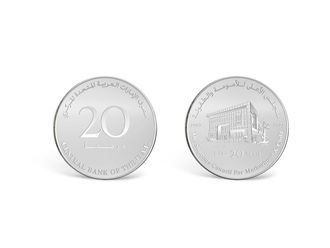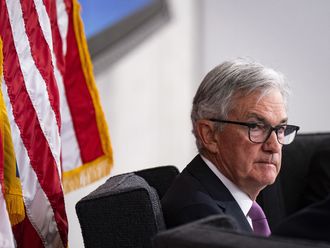Dubai: Representatives of the global private equity industry, who are gathered in Dubai for the SuperReturn Middle East conference, yesterday said that despite a sharp slowdown in global deal flows, the Middle East region offers good opportunities for the industry.
Abraaj Capital, the Dubai-based regional private equity firm, is looking to close up to two deals before year-end and is working on around 40 deals in countries from North Africa to South East Asia, a senior executive said yesterday.
"We are working on approximately 40 deals," Matteo Stefanel, senior partner and member of the executive committee, told reporters on the sidelines of the private equity conference.
Abraaj expects the average deal size to be in the range of $100 million (Dh367.3 million) to $200 million.
Representatives of the regional industry said fund raising, new acquisitions and exits are in the pipeline over the next 12-18 months, despite the continuing flow of bad news from international markets.
Recent research by PricewaterhouseCoopers (PwC) and Insead Abu Dhabi shows confidence returning to the regional PE industry.
The firms are particularly optimistic about the prospects of sectors such as health care, education, consumer goods and oil and gas, which are likely to benefit from government spending plans and regulatory changes. Regional industry players said the surging public sector investments across the region are expected to benefit private equity players.
Ample opportunities
Additionally, many expect the investment needs of wealthy family offices, sovereign wealth funds and big regional Limited Partners (LPs) will provide ample opportunities for regional General Partners (GPs).
"PE firms in the region have a positive outlook on sectors that will benefit from government spending such as the energy, healthcare and general infrastructure construction.
"There is no doubt that Qatar's vast spending planned ahead of the 2022 World Cup will attract foreign capital to such sectors," said Emad Mansour, chief executive of Qatar First Investment Bank.
That fundraising activity remained far below its pre-crisis level is best reflected by the statistics of the total Mena market in 2010: the number of funds rose to eight from the historic low of seven in 2009 and remained well below the highs experienced before the crisis.
While 2010 showed an increase of 23 per cent to $1.4 billion (Dh5.14 billion) relative to $1.1 billion in 2009, the figure remained far below the peak of $6.5 billion in 2008.
Representatives of the global private equity industry sounded downbeat on the prospects of fund raising and deal flows.
"Opportunities are not great for the private equity industry. The risk of losing money is very high. Thus caution should be the watchword," said Howard Marks, chairman of Oaktree.
Many from Europe and the United States lamented the virtual absence of leverage and alternate sources of liquidity.
Etqaan make first close
Etqaan Shariah Capital Partners, a private equity joint venture between The National Investor (TNI) and KIPCO Asset Management Company (Kamco), yesterday announced the first close of its Etqaan Sharia Fund. TNI and Kamco are seeding the fund with $20 million (Dh73.4 million), and will continue to fundraise in regional and international markets, subject to country specific regulatory approvals.
The fund, a first of its kind in the GCC, will invest between $20 million and $40 million in six to eight portfolio companies in the Middle East and North Africa (Mena) region, and will seek to primarily take majority stakes in leading regional businesses. By focusing on companies with the ability to pay cash dividends, Etqaan Sharia Fund aims to provide a dividend yield of up to 5 per cent.












